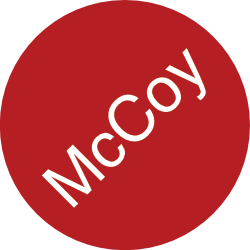I'm a very big fan of Wikis. Both as collaborative tools, but also as unstructured-structured information management tools. I live in the thin line between chaos and order, so having the ability to structure content, but have that structured content structured in an organic – albeit chaotic – way makes me feel happy.
I started using Wikis for documenting IT platforms back in the mid-2000's. They offered the perfect way to document structured information in often very different formats. From storing Cisco router configs (and making use of the inbuilt version control to compare changes) to uploading binary file configs, tables representing 19" racks, work instructions (complete with copy/paste blocks of bash commands) and being able to easily link to other pages. And then the ease of including external links to useful reference information, driver downloads, manuals etc just made them immensely powerful tools.
In those days I used MediaWiki (platform that powers Wikipedia.org), and at somepoint in the early 2010's I migrated to Twiki (very briefly until the shit kicked off) and then to Foswiki. My longest running Foswiki install – a commercial project – must have been 12-13 years old, up to the point the client business was bought out and carved up. I think they had 3 or 4 different Foswiki installs by that point too. Equally, I've had many personal installs, with a couple from 2011-2012 era being eventually merged into newer Foswiki installs (a brilliant feature of Foswiki being the ease of moving data). They're still mostly about in one form or another. Long story short, I've been using them a while.
It's only really the past 4-5 years that I've gotten deeper and deeper into WikiApps, and developing with them and inside of them. I've been building webapps since the late 90's, but never found the need to extended a Wiki, until I realised how amazingly powerful it is.
Maybe it's age or wisdom (hah), but I've steadily moved from the "build it all from scratch" ideology, to something more along "find the best components and if absolutely necessary, build the glue that connects them". And Foswiki is a fantastic starting point for many projects - in fact, it often makes pretty good glue as well. As more and more apps and tools become expressly web based (API's have been pretty good for years, but now more and more front ends have shifted from desktop apps to browser apps), in quite a few cases it's become easy to embed functionality from an app into a Wiki. Unless they're using some nasty weird front end JS stack.
As I've now found myself designing and building out lots of data/information management tools recently, I've been using Foswiki pretty heavily. To drag up an old0-school cliche, I once thought I was a "power user", but now I've been experiencing the true joy of really digging deep into Foswiki, I feel like I was far from being a power user, and was just a learned user. Much like becoming a Japanese master in an obscure handcraft, I see there's much for me to learn still, though as deeply immersed as I am now, I have learnt a lot. And of that, I want to share and document what I have picked up along the way. I'm working on some WikiWorkbench applications, so that's probably the first subject to cover, as I've had to figure quite a bit out through trial and error...
